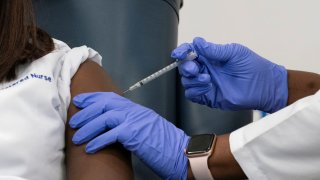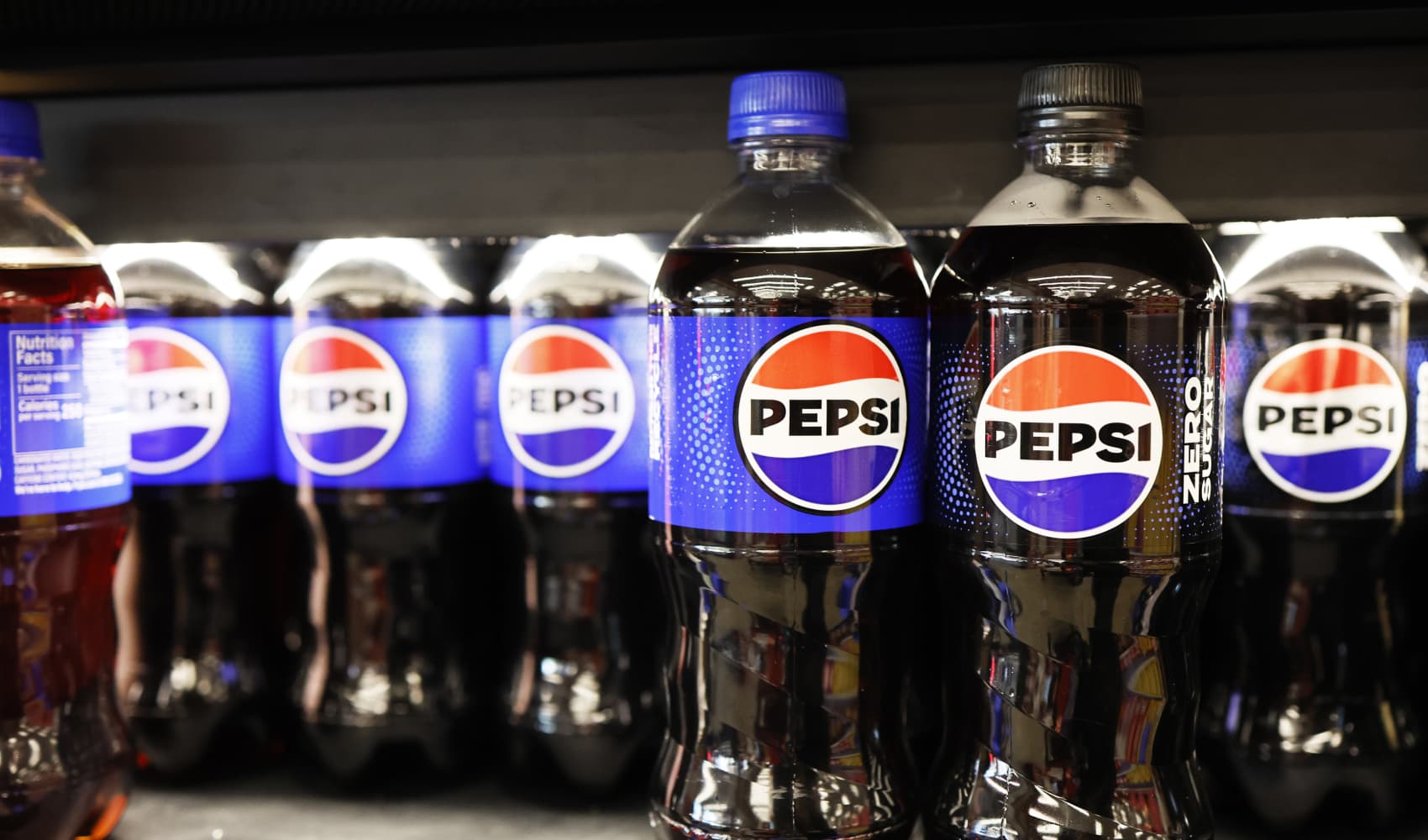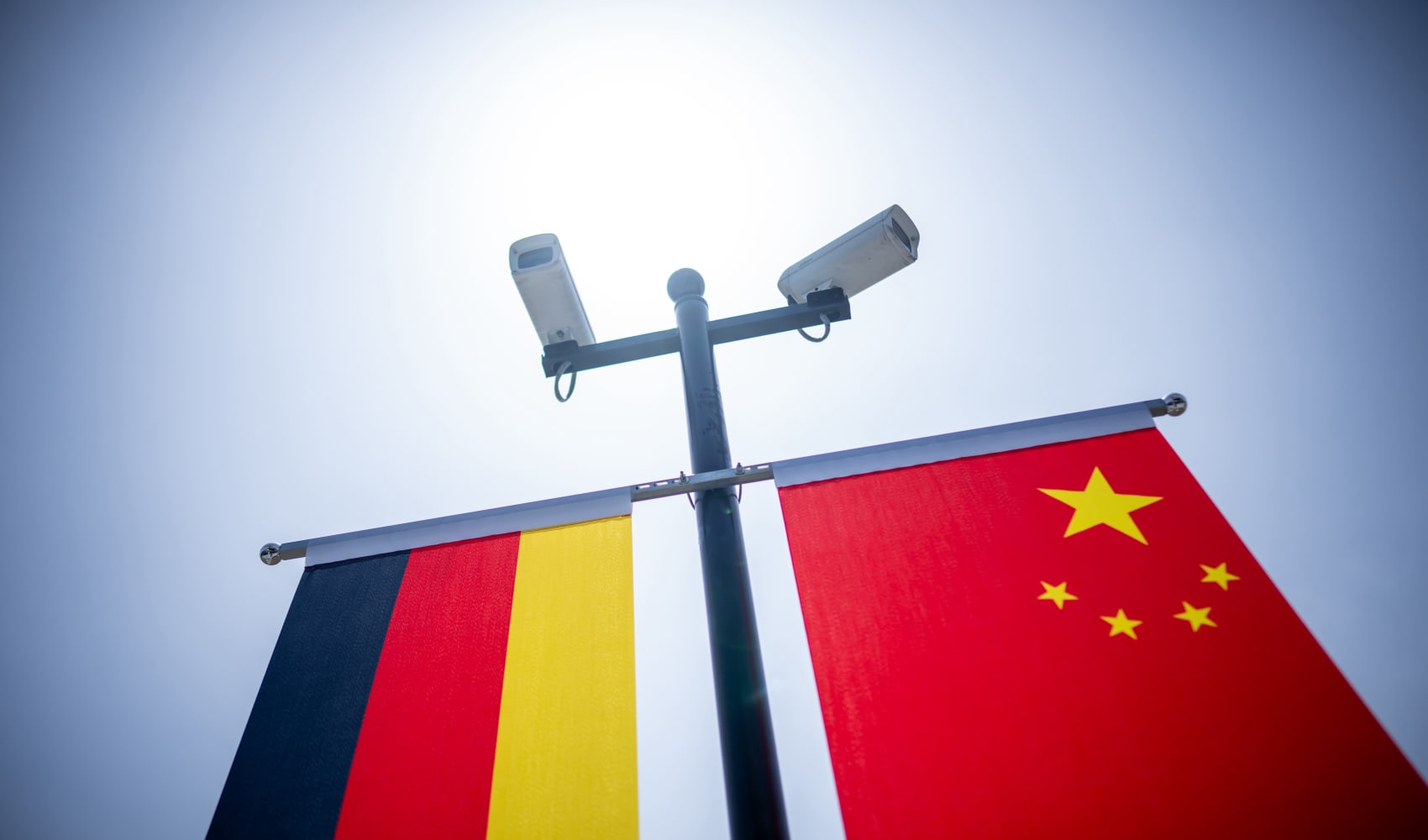
- Congressional efforts to fund state and local distribution of the Covid-19 vaccine continued to hang in the balance even as the first doses of Pfizer's pioneering inoculation were being administered.
- Lawmakers have yet to agree to a funding package to help health departments with the vaccination campaign, despite bipartisan agreement that billions of dollars are needed.
- Negotiations over the funding have been tied to stalled talks over potential bills that would provide economic relief to millions who have suffered as a result of the coronavirus-related financial crisis.
Congressional efforts to fund state and local distribution of the Covid-19 vaccine continued to hang in the balance on Monday even as the first doses of Pfizer's pioneering inoculation were being administered.
Lawmakers have yet to agree to a funding package to help health departments with the unprecedented vaccination campaign, despite bipartisan agreement that billions of dollars are needed.
Negotiations over the funding have been tied to stalled talks over potential bills that would provide economic relief to millions of Americans who have suffered as a result of the coronavirus-related financial crisis.
Those talks, which seemed to be inching forward in recent weeks, have taken on a new urgency as the Christmas holiday approaches and the reality of viable Covid-19 vaccines has set in.
But it still wasn't clear, as the week kicked off, whether Congress would make substantial progress toward passing its first major Covid-19 relief package since the $2.2 trillion CARES Act was approved in March.
The latest plan, part of a $908 billion rescue bill put forward by a bipartisan slate of lawmakers, would allocate $6 billion for distribution efforts. Lawmakers were expected to release text of the legislation on Monday.
Money Report
The $6 billion price tag is in line with requests from the Trump administration, though it is sharply lower than what groups representing health departments say is needed.
For months, the Association of State and Territorial Health Officials and the Association of Immunization Managers have been clamoring for Congress to allocate at least $8.4 billion.
"These funds are urgently needed to expand and strengthen federal, state, local, territorial, and tribal capacity for a timely, comprehensive, and equitable vaccine distribution campaign," the groups wrote in October.
The groups said that $200 million that the Centers for Disease Control and Prevention had already provided amounted to a "down payment."
CDC Director Robert Redfield told the Senate in September that it would take "somewhere between $5.5 [billion] to $6 billion" to distribute a Covid-19 vaccine and said the matter was "urgent."
The Department of Health and Human Services, which houses the CDC, did not return a request for comment on the state of congressional negotiations.
So far, the nature of the most recent proposal to fund state and local vaccine distribution has only been released in summary format.
According to summaries of the legislation, the $908 billion package would include $3.42 billion for direct grants to states and localities, $2.58 billion to fund CDC "vaccine distribution and infrastructure" and $129 million for tribes and tribal organizations.
AIM Executive Director Claire Hannan said that her group was still learning the details of the $6 billion proposal, but that it was promising that lawmakers were separating funds for distribution of the vaccine from funds for contact tracing and testing.
But, she warned, allocating less funding than is required "severely handicaps programs from enrolling more providers and from scaling up vaccination efforts."
"Bottom line: if Congress doesn't reach an agreement, we fear that that programs will not be able to expand their capacity to enroll more providers, meaning that there could be fewer places and opportunities for people to get vaccinated and a longer timeframe to emerge from this pandemic," she said.
The bipartisan plan currently being discussed was hatched by a group of moderate senators from both major political parties and has been championed by the House Problem Solvers Caucus.
House Speaker Nancy Pelosi, D-Calif., and Senate Minority Leader Chuck Schumer have tentatively embraced the plan, calling it a starting point for negotiations.
Senate Majority Leader Mitch McConnell, who would be crucial to getting any legislation passed, has yet to get on board. On Monday, however, McConnell called vaccine distribution funds "incredibly urgent."
"This is the support that state and local governments need most urgently," McConnell said, saying the money would "get citizens vaccinated right now to finish the fight."
The stakes of the ongoing negotiations extend beyond funding for vaccine distribution.
Unemployment benefits that were expanded as a result of the coronavirus pandemic are set to lapse the day after Christmas, cutting payments to 12 million people. Any new deal is also expected to provide more funding for small businesses which have been hurt by the public health crisis.
Despite the widespread recognition that some sort of relief must be granted, the obstacles to reaching a deal have remained largely unchanged for months.
Democrats have pushed for more spending and for assistance to state and local governments, which are facing budget crises as a result of the pandemic. Republicans broadly oppose state and local aid and have insisted that any deal include protection for businesses against liability lawsuits stemming from the crisis.
In addition to those sticking points, independent Sen. Bernie Sanders of Vermont, a progressive, and Republican Sen. Josh Hawley of Missouri, a conservative, have suggested they would hold up a bill that does not include a direct payment to Americans along the lines of the $1,200 stimulus checks sent out earlier this year. The $908 billion plan does not include direct payments.
To date, White House involvement has been limited, though Treasury Secretary Steven Mnuchin has continued to negotiate with Pelosi.
President Donald Trump has shown little interest in corralling a deal on Capitol Hill, focusing instead on his failed legal efforts to overturn the 2020 election. If no deal is reached in the coming weeks, the problem could soon be on the plate of President-elect Joe Biden.
Biden, who has already named several top doctors to posts in his administration, has signaled that distributing the Covid-19 vaccine will be his administration's top priority in his first days, and pledged to deliver 100 million doses in his first 100 days.
But Biden, who will be sworn in on Jan. 20, has suggested that his plan could be thwarted if Congress fails to reach an agreement.
During an address in Wilmington, Delaware, on Tuesday, the former vice president urged Congress to rapidly fund distribution efforts, warning that if they did not "there is a real chance that, after an early round of vaccinations, the effort will slow and stall."
"Let me repeat: We need Congress to finish the bipartisan work underway now or millions of Americans may wait months longer — months longer — than they otherwise would have to to get their vaccinations," Biden said.
Subscribe to CNBC Pro for the TV livestream, deep insights and analysis on how to invest during the next presidential term.






